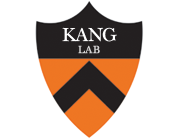Autophagy regulator BECN1 suppresses mammary tumorigenesis driven by WNT1 activation and following parity.
Publication Year
2014
Type
Journal Article
Abstract
Earlier studies reported allelic deletion of the essential autophagy regulator BECN1 in breast cancers implicating BECN1 loss, and likely defective autophagy, in tumorigenesis. Recent studies have questioned the tumor suppressive role of autophagy, as autophagy-related gene (Atg) defects generally suppress tumorigenesis in well-characterized mouse tumor models. We now report that, while it delays or does not alter mammary tumorigenesis driven by Palb2 loss or ERBB2 and PyMT overexpression, monoallelic Becn1 loss promotes mammary tumor development in 2 specific contexts, namely following parity and in association with wingless-type MMTV integration site family, member 1 (WNT1) activation. Our studies demonstrate that Becn1 heterozygosity, which results in immature mammary epithelial cell expansion and aberrant TNFRSF11A/TNR11/RANK (tumor necrosis factor receptor superfamily, member 11a, NFKB activator) signaling, promotes mammary tumorigenesis in multiparous FVB/N mice and in cooperation with the progenitor cell-transforming WNT1 oncogene. Similar to our Becn1(+/-);MMTV-Wnt1 mouse model, low BECN1 expression and an activated WNT pathway gene signature correlate with the triple-negative subtype, TNFRSF11A axis activation and poor prognosis in human breast cancers. Our results suggest that BECN1 may have nonautophagy-related roles in mammary development, provide insight in the seemingly paradoxical roles of BECN1 in tumorigenesis, and constitute the basis for further studies on the pathophysiology and treatment of clinically aggressive triple negative breast cancers (TNBCs).
Keywords
Animals,
Humans,
signal transduction,
Oligonucleotide Array Sequence Analysis,
Membrane Proteins,
Cell Proliferation,
Mice,
Female,
Heterozygote,
Breast Neoplasms,
Gene Expression Regulation, Neoplastic,
Autophagy,
Epithelial Cells,
Stem Cells,
Alleles,
Apoptosis,
Wnt1 Protein,
Mice, Nude,
Mammary Neoplasms, Experimental,
Apoptosis Regulatory Proteins,
Beclin-1,
Mammary Neoplasms, Animal,
Triple Negative Breast Neoplasms
Journal
Autophagy
Volume
10
Issue
11
Pages
2036-52
ISSN Number
1554-8635
Alternate Journal
Autophagy
PMID
25483966

